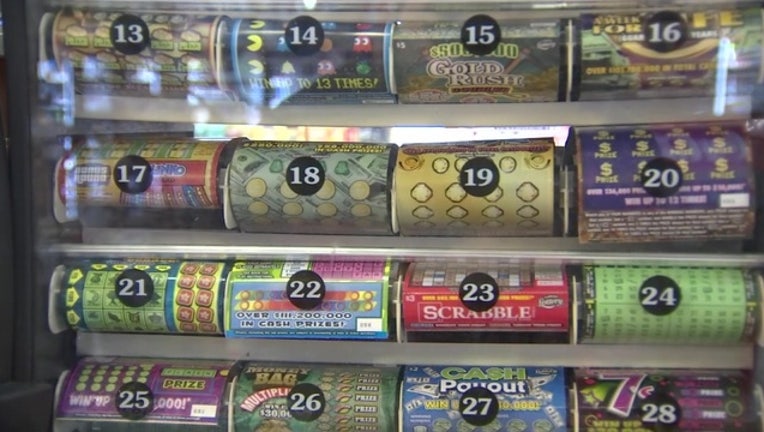Lottery addiction warning draws debate

TALLAHASSEE, Fla. (NEWS SERVICE FLORIDA) - Booze and beer don’t carry similar cautions, but some Republican lawmakers want people playing the state lottery to be warned that the games may be addictive.
With the 2019 legislative session in its final days, the Senate is considering a proposal that would require all lottery tickets to include a warning, which also would be part of any advertisements for the state-sponsored games.
The bill would require the tickets and promotions to include the words: “Warning: Lottery games may be addictive,” or “Play responsibly,” under an amendment approved Wednesday by the Senate.
Hours earlier, Florida Lottery Secretary Jim Poppell asked Senate Democrats to vote against the measure, which he said “doesn’t tell people what they need.”
The proposal not only requires a warning label on tickets “but a warning label that would have to be on just about everything that could be construed as promoting the lottery,” Poppell said.
“That would be vending machines, play stations where you get your paper to bubble in the numbers, on every sign, on every advertisement --- radio, television, social media, what have you,” Poppell said.
The House last month overwhelmingly approved a version of the bill with a longer, more-dire message: “Warning: Playing a Lottery game constitutes gambling and may lead to addiction and/or compulsive behavior. The chances of winning a big prize are very low.” House Speaker José Oliva, R-Miami Lakes, strongly supports the proposal.
The Senate never passed its own version of the bill, but the Senate Rules Committee last week took up and approved the House’s measure.
During a Senate floor session Wednesday, Appropriations Chairman Rob Bradley said he proposed shortening the warning message to assuage concerns from other senators “who think that the language is too much.”
But, he insisted, the warning is necessary.
“For some folks, their brain works in a way that they can become addicted to gaming just like you can become addicted to alcohol and drugs,” Bradley, R-Fleming Island, said.
More is known about addiction than when the lottery was created more than three decades ago, Bradley said.
“This is a government-run gaming operation. That’s what it is,” he said, adding the warning gives the state an opportunity to create a “balanced message where we want people to know, we want you to play but this is not gaming light.”
The Florida Lottery’s annual sales have grown to more than $6 billion since tickets first went on sale in 1988. The money is used to help fund the state’s education system, including Bright Futures scholarships.
Democrats shared Poppell’s concerns about the warnings’ negative impact on sales and on education funding. According to state economists, the warnings in the House bill would cause a $64 million drop in revenues steered to schools in 2021, when the bill would go into effect. That amount is projected to increase in subsequent years.
“We brag about the … billions of dollars that’s gone into education. Some would say we’re addicted to that money,” Sen. Bill Montford, a Tallahassee Democrat and a former Leon County superintendent of schools, said during a Wednesday’s floor discussion.
But Bradley said the shorter warnings proposed by the Senate should mitigate some of the financial shortfall.
The reduction in education funding would be made up with other revenue sources, said Bradley, who acknowledged the warnings could have an impact, “because when you tell people what they’re doing, they may make a decision not to do it, which I don’t think is a bad thing.”
Former Gov. Rick Scott vetoed a similar measure in 2017, saying it would impose “burdensome regulations” on the games and retailers. Poppell’s open opposition to the proposal could also reflect opposition from his boss, Gov. Ron DeSantis.
In his remarks to the Senate Democrats, Poppell said the Florida Lottery “has worked very hard” to receive certification by the National Council on Problem Gambling.
“They looked at everything,” he said, “and certified that we are acting in a responsible manner.”
Lottery tickets already are printed with a hotline number for addicted gamblers to get help, Poppell said.
“This is what we learned is the most important thing we can do,” he said.
Lottery retailers are worried about “the volume of negativity,” the secretary added.
“It isn’t just a warning label on the ticket. It is this message on everything. And it has to be prominently displayed. So our retailers are expressing concern,” he said.
The Senate could vote on the measure as early as Thursday. If it is approved, the proposal would have to be sent back to the House. Ultimately, the two chambers would have to agree on the warning details before a bill could go to DeSantis.
The News Service of Florida contributed to this report.

